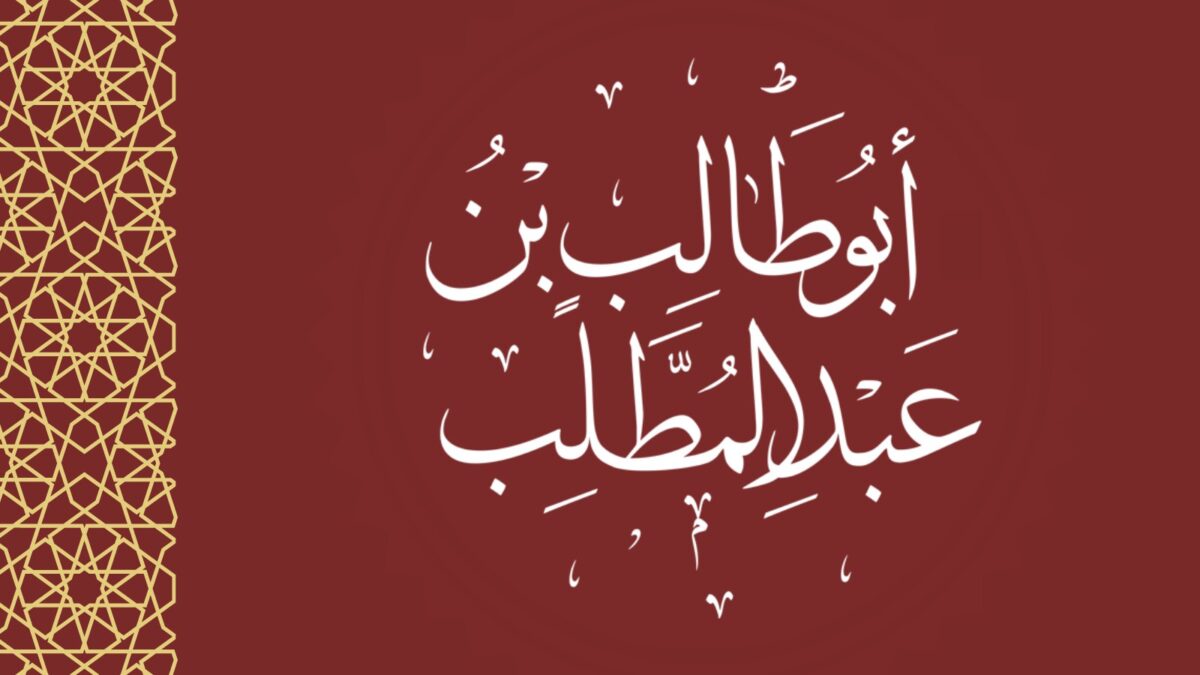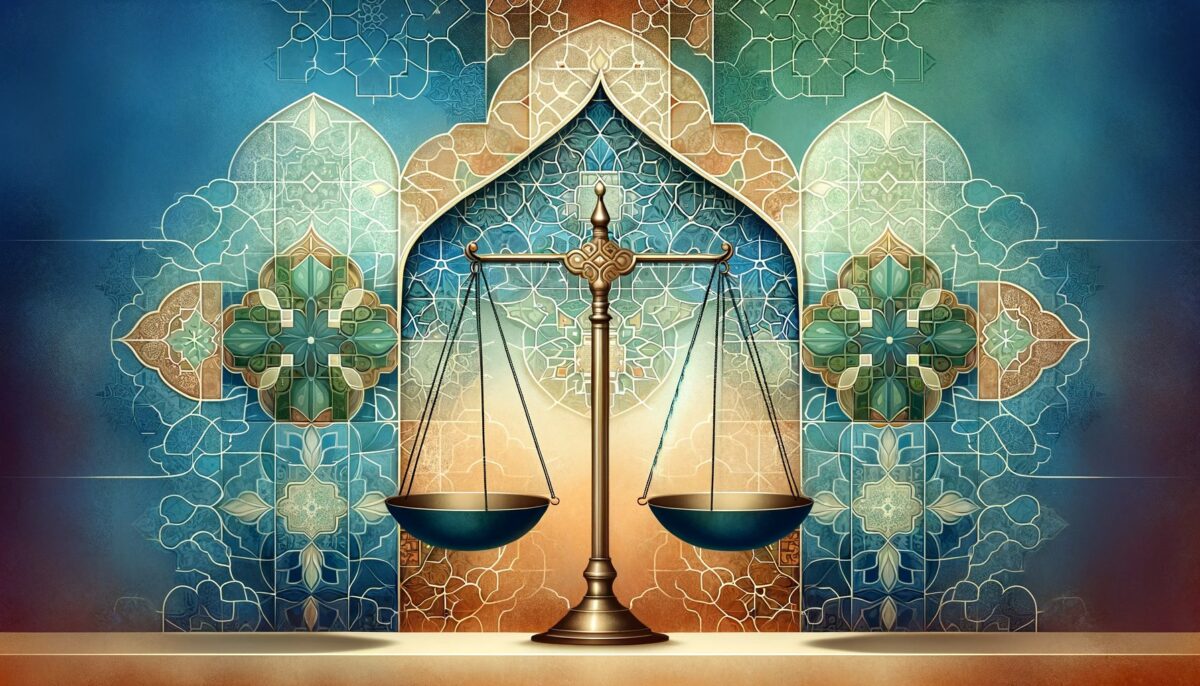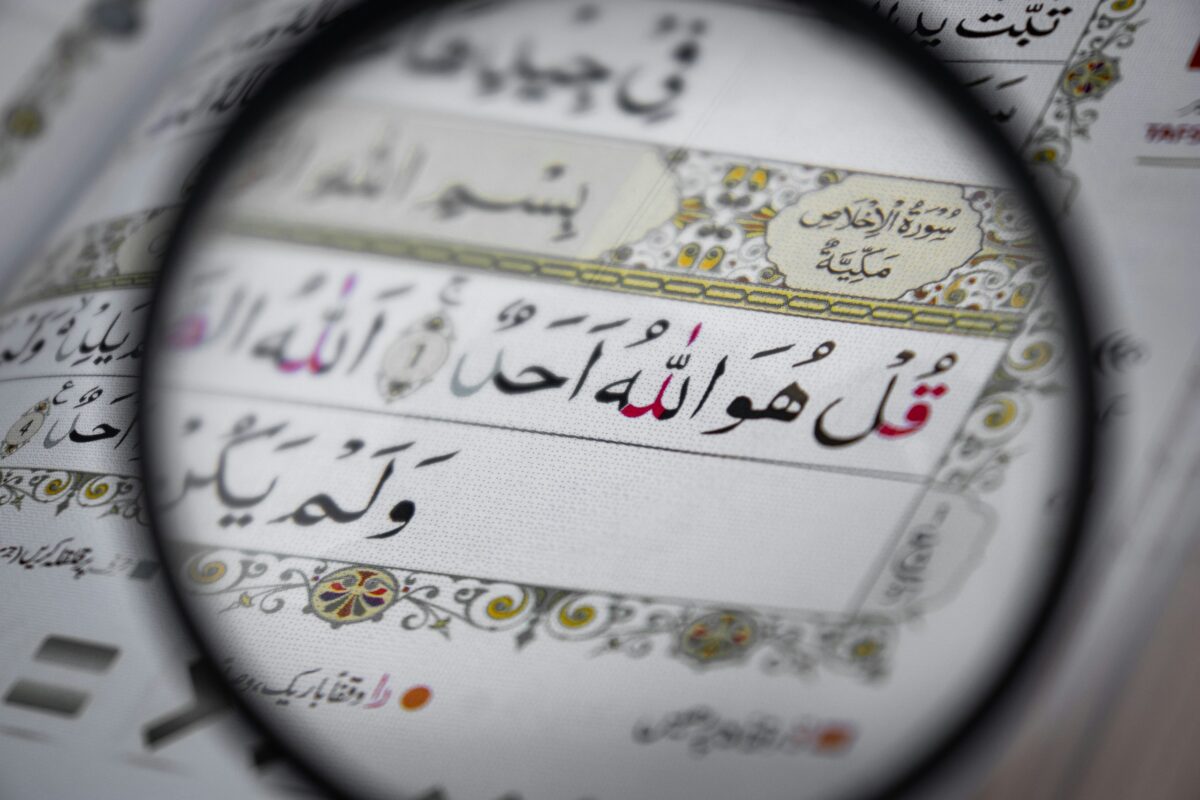Guidance regarding basic Islamic issues – which Hazrat Amirul Momineen, Khalifatul Masih Vaa has given on various occasions in his written correspondence and during MTA programmes – is being officially published below for everyone’s benefit.

Faith and fate of Hazrat Abu Talib
Someone wrote to Hazrat Amirul Momineen, Khalifatul Masih Vaa, stating, “I hold special affection for Hazrat Abu Talib because he protected the Holy Prophetsa throughout his life and stood by him during the most challenging times. How could such a person not be a Muslim?”
Huzoor-e-Anwaraa, in his letter dated 24 August 2022, provided the following guidance in response to this question:
“Hazrat Abu Talib provided extraordinary support and protection to the Holy Prophetsa and did not abandon him even during the painful period of confinement in the Shi‘b Abi Talib. Hazrat Mirza Ghulam Ahmad, the Promised Messiahas, who was the greatest lover, the most ardent devotee, and the spiritual son of the Holy Prophetsa, stated the following while reflecting upon the compassionate behaviour and attitude of Hazrat Abu Talib and while mentioning an incident involving the antagonism directed towards the Holy Prophetsa by the disbelievers of Mecca and the support he received from Hazrat Abu Talib:
“‘When these verses were revealed, declaring the polytheists as impure, foul, the worst of creation, foolish, and progeny of Satan, with their gods as fuel for the Fire and firewood of Hell, Abu Talib called the Holy Prophetsa and said, ‘O my nephew, your vilification has deeply angered the people. They are likely to kill you and me as well. You have called their intellectuals foolish and their elders the worst of creation. You have termed their revered gods as fuel for the Fire and firewood for Hell and their entire populace as impure and progeny of Satan. I counsel you with goodwill to restrain your tongue and desist from this vilification; otherwise, I have no strength to face the people.’ In response, the Holy Prophetsa said, ‘O uncle, this is not vilification but a statement of facts, presented in the most appropriate and befitting manner, and that is the very purpose for which I have been sent. If this leads to my death, I gladly accept it. My life is committed to this path. I cannot desist from expressing the truth out of fear of death. O uncle, if you are concerned about your own vulnerability and inconvenience, then you are welcome to withdraw your support. By God, I have no need for it. I will never stop conveying God’s commands; they are dearer to me than life itself. By God, if I am killed in this path, I would wish to be resurrected and killed again and again. This does not cause me any fear; rather, I derive immense pleasure in facing hardship in this path.’ As the Holy Prophetsa was speaking, his face was radiating truth and luminosity, while he was also being overwhelmed by emotions. When he concluded, Abu Talib was moved to tears by the evident light of truth and said, ‘I was unaware of this lofty state of yours. You are indeed in a different realm and stature. Go, pursue your mission. As long as I live, and within my means, I will stand by you.’
“‘This entire content, although part of Abu Talib’s story recorded in books, is divinely inspired which God has revealed to this humble servant. Only a few phrases are added by me for explanatory purposes. This inspired statement clearly illustrates Abu Talib’s compassion and empathy; however, it establishes with absolute certainty that this empathy was born after witnessing the Holy Prophet’ssa prophetic light and steadfastness.’ (Izala-e-Auham, Ruhani Khazain, Vol. 3, pp.110 to 112 and footnote)
“Thus, Hazrat Abu Talib extended his utmost support to the Holy Prophetsa to the extent that he was willing to face the opposition of his own tribe for the sake of the Holy Prophetsa. However, he did not renounce the religion of his people, and despite the insistence of the Holy Prophetsa, he refrained from proclaiming the kalimah to affirm monotheism [Tawhid]. Hence, Hazrat Musleh-e-Maudra writes regarding what happened upon the complaint of the chieftains of Mecca, who had advised Hazrat Abu Talib to deter the Prophetsa from his mission, the Holy Prophet’ssa response thereto, and Hazrat Abu Talib’s eventual announcement of his support for the Holy Prophetsa:
“‘The significance of Abu Talib’s response cannot be fully comprehended by those who are not acquainted with history, for they are unaware of another incident that sheds light on Abu Talib’s emotional state and reveals how deeply he loved his tribe. When the time of his demise drew near, the Holy Prophetsa, who had immense love for him due to his sacrifices and benevolent conduct, was profoundly distressed that he would die without embracing Islam. The Holy Prophetsa would sit beside him, sometimes on his right, sometimes on his left, urging, ‘O Uncle! The time of death is near; please pronounce ‘لَا إِلَهَ إِلَّا اللَّهُ مُحَمَّدٌ رَسُولُ اللَّهِ’ [There is none worthy of worship except Allah and Muhammad is His Messenger.].’ However, Abu Talib remained silent and offered no response. Ultimately, the Holy Prophetsa insisted vehemently; being overwhelmed by emotions, and he would repeatedly urge, ‘O Uncle! Just pronounce the kalimah once, so that I may testify before God that you accepted Islam.’ However, in the end, Abu Talib replied that he could not abandon the religion of his people. In other words, his love for his tribe was so intense that he did not even desire Heaven without them. A man who held such intense love for his tribe was so affected by the courageous response of the Holy Prophetsa that he declared, ‘Fine, if my tribe forsakes me, let them. I will not forsake you.’’ (Khutbat-e-Mahmud, Vol. 17, p. 264, 1 May 1936)
“Thus, on the one hand, Hazrat Abu Talib supported the Holy Prophetsa until his final moments; yet, on the other hand, despite acknowledging the veracity of the Prophetsa and his faith, he refrained from pronouncing the kalimah to affirm the Oneness of God [Tawhid]. Considering this in the light of God Almighty’s justice and equity, the Prophetsa expressed the hope that on the Day of Judgment, his intercession might offer some benefit to Hazrat Abu Talib. He said it is hoped that Abu Talib will be placed in the intermediate level of the Fire, which will rise only up to his ankles, causing his brain to boil. Had I not existed, he would have been in the lowest level of Hell. (Sahih al-Bukhari, Kitab manaqibi l-ansar, Bab qissati abi talib)
“In this world, we observe that when a person commits a crime and is sentenced to prison according to the severity of their crime, some receive lesser and others more severe sentences. Similarly, Hell has been created as a punishment for the mistakes and sins committed in this world, and there too, each individual will have to endure punishment for a lesser or greater period, in accordance with the extent of their errors and sins. Hence, in discussing Hell, one should also remember that, as explicitly stated in the Holy Quran and ahadith of the Holy Prophetsa, it serves a function akin to that of a hospital, where sinners are sent for treatment. Now, just as in a hospital, patients seeking treatment for cancer are admitted alongside those receiving minor first aid; similarly, the statement of the Holy Prophetsa should be understood in the same vein. Those opponents of Islam who tirelessly worked day and night to counteract and eradicate it, applying all their might and resources in hostility, will go to Hell much like a person afflicted with a grievous illness goes to a hospital and stays there for an extended period. Conversely, Hazrat Abu Talib’s placement in Hell can be likened to a person who goes to a hospital for a minor wound, receives the necessary dressing, and then promptly returns home.
“As for Hazrat Abu Talib, although he was born during a period of polytheism and despite the Holy Prophet’ssa earnest endeavours and wishes, did not proclaim the Oneness of God, he was not ensnared in the kind of polytheism practised by those who were outright enemies of Tawhid and Allah the Exalted. These people would openly express their polytheism and were engrossed day and night in opposing Allah and His Messengersa. Therefore, due to his virtuous nature and his support and assistance to the Holy Prophetsa, Hazrat Abu Talib will neither serve as fuel for Hell like the enemies of Allah nor will he remain there for an extended period. Yes, for a brief period, just as one who suffers from a minor illness may go to the hospital for some time, Hazrat Abu Talib may also face the fire of Hell briefly for treatment. This fact has been articulated in the statement of the Holy Prophetsa.”
Islamic inheritance laws and financial equity between men and women

A lady from the UK sent a question to Hazrat Amirul Momineen, Khalifatul Masih Vaa, asking, “The reason why a son receives double the share of a daughter in inheritance is that the son is responsible for the expenses of his parents, wife, and children. However, nowadays both husband and wife work. Similarly, if a daughter is unmarried, divorced, or separated through talaq or khul‘ and living alone, she does not receive anything from the man. Additionally, some sons do not take on the responsibility of their parents, whereas daughters, working and earning, shoulder the household responsibilities. I believe it is necessary to clarify these matters so that any woman’s right is not infringed upon.”
Huzoor-e-Anwaraa, in his letter dated 22 August 2022, provided the following guidance on this issue:
“The first point to understand is that the teachings of Islam are perpetually lasting, immutable, and as practicable for every era as they were during the blessed time of the Holy Prophet Muhammadsa. This is because the Being Who revealed these teachings is fully aware of all the changes and events that have occurred and will occur in the universe from the beginning to the Day of Judgement. The same Being has also taken the responsibility for the protection of these teachings. Therefore, to say ‘the teachings of Islam were practicable in olden times, but now, as women have started working and taking on household responsibilities, there is a need to change these Islamic teachings’, is a frivolous and inappropriate statement.
“Regarding the matter of women owning property or taking on household responsibilities, it is not a phenomenon unique to this era. Even in ancient times and during the blessed era of the Holy Prophet Muhammadsa, there were women of substantial wealth who spent their resources on their husbands and children. However, they never raised the question that, since they were spending on their husbands and children, they should receive an equal share of inheritance as men do. For instance, Hazrat Khadijahra was a wealthy woman who, after marriage, entrusted all her wealth and property to the Holy Prophetsa. (Allamah Fakhr al-Din al-Razi, al-Tafsir al-Kabir, under verse 9 of Surah ad-Duha; ‘wa wajadaka ‘a’ilan fa aghna’) Similarly, the Companion, Hazrat Abdullah bin Mas‘udra, who was a poor labourer, had a wealthy wife, Hazrat Zainabra, who used to spend from her wealth on her husband and children. (Sahih al-Bukhari, Kitab al-zakah, Bab az-zakati ‘ala z-zawji wa l-aytami fi l-hajr)
“The notion that ‘since women have started working, the responsibility of household expenses has shifted from the husband to the wife’ is also incorrect. According to Islamic teachings, irrespective of whether the wife owns property or is employed, the responsibility for providing for the children’s lodging, clothing, and food lies with the husband, and he is bound to fulfil these responsibilities according to his capacity. The husband has no right over the property or income of his wife. However, a husband has the authority to allow his wife to work if he is adequately providing for the needs of his wife and children. If the husband does not agree to his wife’s employment, Islam grants him the right to prevent her from working. However, if the wife is working with her husband’s permission and consent, all her earnings belong solely to her, and the husband has no right to control or use her income. Islam has carefully considered the rights and responsibilities of both husband and wife at every turn. Accordingly, the responsibility for external affairs, including the provision of sustenance for the wife and children, has been entrusted to the husband by Allah Almighty. Domestic responsibilities (which include safeguarding household property, meeting the husband’s needs, and nurturing the children) have been assigned to the wife by Allah the Exalted.
“The point you made about granting a woman who has not married, or is divorced [talaq], or has obtained khul‘, an equal share in inheritance as a man, is also not correct. This is so because if a man has not married, or if he has divorced his wife, or if his wife has obtained khul‘, then he also does not receive anything from his wife’s inheritance. Generally, in the case of talaq and sometimes in the case of khul‘, the husband has to pay the wife her dowry [mahr], whereas, in the event of talaq or khul‘, the wife does not have to pay anything to her husband.
“In today’s Western-influenced society, women often have the misconception that their rights are being usurped in every aspect and situation. Islamic teachings provide a complete and eternal system based on equitable rights and responsibilities. There is no need for any kind of change in these teachings.”
Tawhid: Allah’s Oneness and other attributes in the basmala

Someone from the USA wrote to Hazrat Amirul Momineen, Khalifatul Masih Vaa, asking, “Surah al-Fatiha begins with ‘بِسۡمِ اللّٰہِ الرَّحۡمٰنِ الرَّحِيۡمِ’ [In the name of Allah, the Gracious, the Merciful.], which mentions God Almighty’s personal name, Allah, and two of His attributes. However, why aren’t the attributes of ‘al-Ahad’ [Unique] or ‘al-Wahid’ [One] mentioned therein, given that the purpose of the Holy Quran’s teaching is to establish the Oneness of God Almighty?”
Huzoor-e-Anwaraa, in his letter dated 31 August 2022, provided the following reply to this query:
“The distinctive feature of Islam is the manner in which it introduces humankind to the concept of Tawhid (Oneness of God), unlike any other religion. The personal name of God Almighty, ‘Allah’, is the root of Tawhid, encompassing within itself all the divine attributes. Hazrat Mirza Ghulam Ahmad, the Promised Messiahas, states regarding this matter:
“‘In the terminology of the Quran, ‘Allah’ is the name of the Being in Whom all the attributes of beauty and benevolence have reached their pinnacle of perfection, and there is no flaw in His entity. The Holy Quran attributes all divine qualities exclusively to the name of Allah, indicating that the name ‘Allah’ is truly realised when all perfect attributes are found within it.’ (Ayyam-us-Sulh, Ruhani Khazain, Vol. 14, p. 247)
“Thus, the Holy Quran commences with the personal name of God Almighty, ‘Allah’, in the most beautiful manner, incorporating the attribute of His Unity within it. The Promised Messiahas further states:
“‘‘Allah’ is translated as that God, or that Being Who is beyond perception, transcending all intellect, beyond the beyond, and intricately unfathomable and subtle, towards Whom, everything turns in a state of worshipful hue, that is, in a state of existential annihilation—either a metaphorical annihilation in Divine love, which is a spiritual state, or an actual annihilation, which is death. (Tuhfa-e-Golarwiyya, Ruhani Khazain, Vol. 17, p. 268)
“Thus, the word ‘Allah’ itself articulates this notion, proclaiming God Almighty’s Oneness, His uniqueness as the Sole Deity, and declaring that no one is a partner in His Divinity.
“Furthermore, it is not imperative for every verse of the Holy Quran to explicitly mention the attribute of God’s Unity. The Holy Quran is a complete book that, along with establishing the Oneness of God Almighty, also extensively elucidates the other attributes of the True God for its followers. Otherwise, this objection would also apply to the last two chapters of the Quran, where only the attributes of Lord [Rab], Master [Malik], and God [Ilah] are mentioned, and the attributes of the Unique [al-Ahad] or the One [al-Wahid] are not explicitly stated.
“The Holy Quran is a complete heavenly book which, alongside the apt elucidation of all attributes of God Almighty, through its teachings, impact, reformative power, and spiritual essence, rescues its true adherents from every sin and corrupt life, bestowing upon them a life of purity. Additionally, the Holy Quran imparts perfect insight for the recognition of God Almighty, nurtures a relationship of love with Him, and guides the seeker of God to their ultimate destination.”
(Compiled by Zaheer Ahmad Khan, Head of Records Department, Private Secretariat, London. Translated by Al Hakam.)

